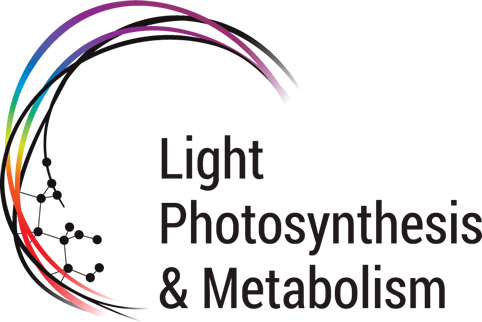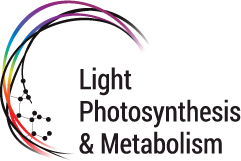
New Member ! Fiona Cesarin
1st November 2020
New Member ! Mathilde Menneteau
1st December 2020


The recently launched GAIN4CROPS project, funded by the European Commission, aims to improve the photosynthetic efficiency of sunflower, an oilseed crop, using nature-inspired solutions and innovative breeding techniques. This 5-year, €8 million project, funded by the European Horizon 2020 framework programme and involving the Laboratory of Cellular and Plant Physiology (INRAE/CNRS/CEA/Université Grenoble-Alpes), will pave the way for the introduction of strategic crops that could reduce the use of major resources in agriculture: land, nitrogen and water.
GAIN4CROPS (www.gain4crops.eu) is developing new disruptive technologies to overcome one of the main constraints of photosynthesis: photorespiration, a process that reduces the efficiency of CO2 assimilation, and thus biomass yield and agricultural productivity.
Most plants (85%), including rice, wheat, soybeans and all trees, carry out photosynthesis in the so-called C3 type. At higher temperatures, their photosynthetic efficiency is strongly impaired by photorespiration, which limits yield. However, some plants have developed metabolic strategies to circumvent this effect: they actively accumulate CO2 in specific compartments, thus creating an environment that is not conducive to photorespiration.
GAIN4CROPS is inspired by one of these natural metabolic strategies and proposes a stepwise approach to improve the efficiency of photosynthesis. The consortium aims to optimise the process by designing new metabolic pathways that make better use of cellular resources while avoiding the release of CO2 into the atmosphere.
“Attempts to include new metabolisms in crops have proven to be very complicated, mainly due to the difficulties of introducing de novo leaf anatomy and inserting into the complex regulatory networks of the cell,” explains project coordinator Professor Andreas Weber, from the Institute of Plant Biochemistry at the Heinrich Heine University of Düsseldorf. “In GAIN4CROPS, we rely instead on the natural physiology of the sunflower – which has the innate ability to evolve into improved metabolisms, ultimately increasing agricultural productivity.“
Overall, the approaches followed by GAIN4CROPS offer the potential to reduce the use of three major resources in agriculture: land, nitrogen and water. A more efficient rate of photosynthesis increases crop yields per unit area of land, limiting the expansion of arable land and the need for nitrogen fertiliser and water.
The benefits of GAIN4CROPS plants become even more evident at higher temperatures, promoting the development of climate-resilient crops needed to cope with the consequences of anthropogenic climate change.
“With GAIN4CROPS, we join current efforts to align land use and food production to conserve biodiversity, reduce the environmental impact of agriculture and provide sufficient quantities of healthy food,” says Professor Weber. Indeed, sunflower oil is a healthy alternative to other edible oils, such as palm oil.
The consortium, consisting of 3 research organisations (Max Planck Society, CEA and Agroscope), 6 academic institutions (Heinrich Heine University Düsseldorf, University of Rostock, University of Cambridge, University of Padua, Estonian University of Life Sciences and University of Groningen), 1 industry representative (Corteva Agriscience) and 3 SMEs (IN srl, NRGene Ltd and Genomix4Life), brings together a wide range of expertise and brings together cutting-edge research in plant physiology, microbiology and systems biology with groups highly experienced in genome sequencing, plant breeding and field crops.
The ‘Light, photosynthesis and metabolism’ group (lpm-research.com) of the Laboratory of Cellular and Plant Physiology (INRAE/CNRS/CEA/UGA) in Grenoble is contributing to this project with its expertise in the field of photosynthetic physiology, biophysics and metabolism, as well as in metablolism modelling.
Giovanni Finazzi and Gilles Curien, CNRS researchers at the Cellular and Plant Physiology Laboratory (UGA / CNRS / INRAE / CEA) within the CEA-Grenoble Interdisciplinary Research Institute (CEA-Irig), say: “The photosynthesis and metabolism light team has developed key research areas for the GAIN4CROPS project, namely the compartmentalisation of metabolism in plants and the non-invasive analysis of photosynthesis. We are very excited to be able to contribute our innovations to sustainable agriculture“.
The experience gained with GAIN4CROPS will serve as a roadmap to achieve similar performance in other plants and pave the way for innovative crops that, through climate resilience and reduced resource consumption, could lead to more sustainable agriculture.

